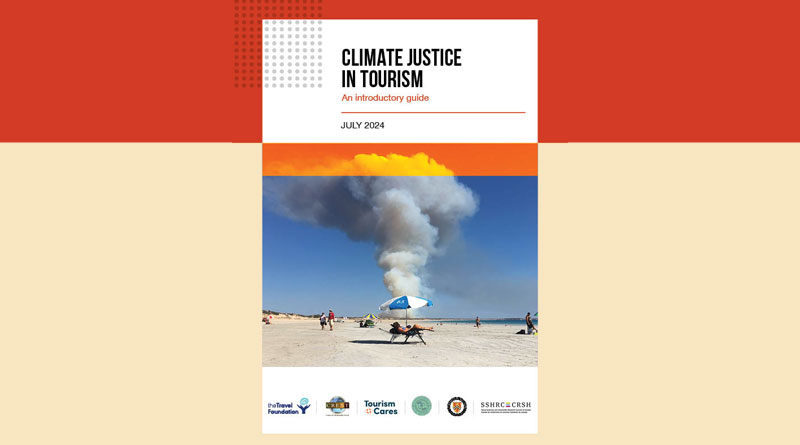Tourism Business And NGOS Call For Global Action To Recognise And Support Climate-Vulnerable Communities

A new report out today highlights the role the travel industry must play in delivering a just climate transition. The report, Climate Justice in Tourism: an introductory guide, aims to kick-start a much-needed conversation about the action companies can take to ensure no destination is left behind.
Against a backdrop of increasingly frequent and severe weather events, and with 2023 the hottest year on record, the report calls on the travel industry to urgently coordinate resources and allyship for communities most at-risk from climate change, particularly those who rely heavily on tourism. The report also calls for action to make emissions fairer, for instance through a frequent flyer levy, given that 1% of the world’s population (mostly from richer countries) is responsible for over 50% of aviation emissions, and with emissions expected to keep growing.
The report’s findings are the independent conclusions of a collaboration between the Travel Foundation, the University of Waterloo, Tourism Cares, the Center for Responsible Travel (CREST) and Cuidadores de Destinos. Climate justice is defined as “recognising the unequal responsibility that certain groups bear in relation to greenhouse gas emissions”, placing “those who are most vulnerable to climate change, and who are often the least responsible for causing it” at the centre.
While more travel companies are significantly increasing investment in climate action, the report finds that published plans show little evidence of action to address climate risks, either to businesses or the communities where they operate, nor are they taking account of the perspectives of those communities. Yet businesses working with their suppliers and the wider community in vulnerable destinations are likely to emerge stronger, with resilient supply chains and enhanced reputations. Tourism leaders can find new ways to collaborate at scale, to coordinate support for local small businesses, and prioritise investments that strengthen the communities most dependent on tourism and most at risk from climate change.
Dr. Bobbie Chew Bigby, lead author of the report, said:
“Climate action is partial if it ignores the unequal impacts and challenges of the climate emergency on supply chains, places and communities – and may even lead to unintentional harms. And so – aside from the clear social, ethical and environmental imperatives – our report highlights the business benefits and significant opportunities for those taking a climate justice approach, as well as the mounting risks of not doing so. We hope this encourages action-oriented conversations, particularly involving communities at the sharp end that are not currently being heard.”
Organisations representing the travel industry have welcomed the report. The World Travel and Tourism Council said it “raised important questions” and “we must now collaborate, and partner with communities, to find answers and build a fairer future.” The World Sustainable Hospitality Alliance called the report “a vital beacon, guiding us towards a more equitable and resilient world.”
The report concludes with 10 ideas “that could be rapidly brought to life” to scale collaborative action for climate justice in tourism.
For example:
- A new global climate fund to direct for travel and tourism to support green transitions and resilience-building in vulnerable destinations.
- Pilot projects focused on key destinations and their critical climate-related issues, such as heat stress, water security, or catalysing a green energy transition.
- Mobilising the travel industry as a first responder in times of crisis, supporting humanitarian agencies and local leaders by repurposing hotels, kitchens, resources and logistical expertise.
The project team would welcome the chance to engage with anyone interested in exploring how any of the 10 ideas in the report could be rapidly brought to life.
The full report and executive summary are free to access at climatejusticeintourism.org
